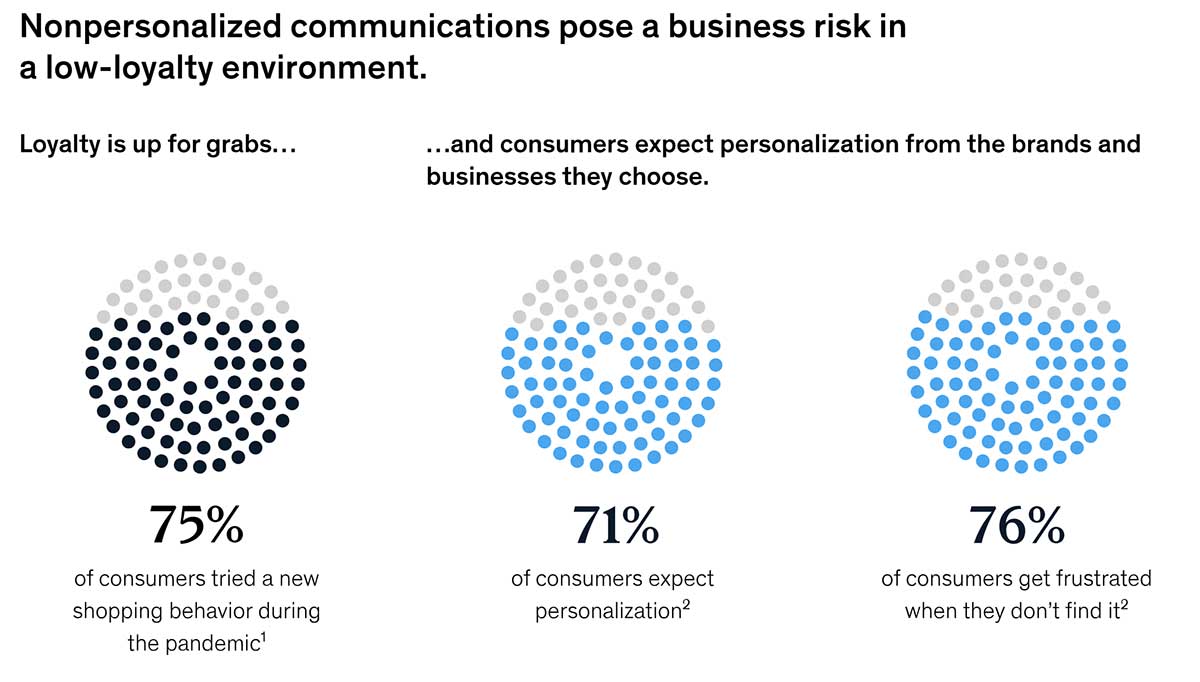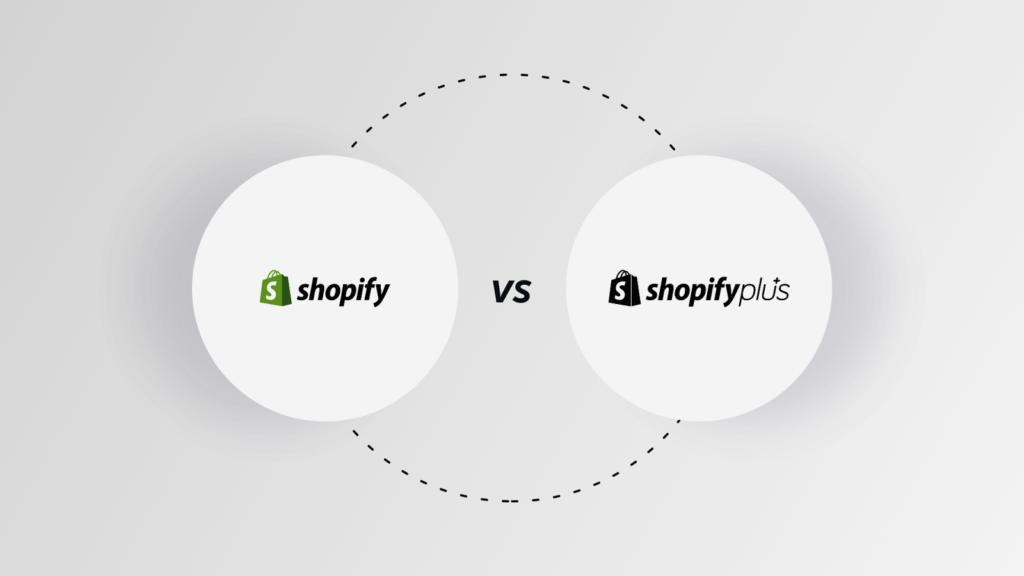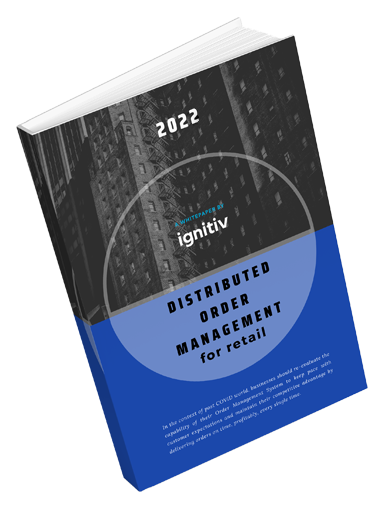Why Is There So Much Interest in Generative AI in eCommerce?
As per Shopify’s Global eCommerce Sales Growth Report, global eCommerce sales are expected to grow by 8.9% in 2023, reaching a whopping $5.8 trillion. But as this industry continues to evolve, so does the need for innovation to stay competitive and meet customers’ changing demands. The advent of generative AI solutions can accommodate just that. E-commerce intelligence is a trending term in the retail industry, and generative AI is gaining traction for all praiseworthy reasons.
The Soaring Interest in Generative AI in eCommerce
Generative AI has captured the attention of e-commerce businesses for several compelling reasons and here are some real-world AI use cases in ecommerce:
Product Content Creation
Product data is critical to e-commerce success, for it amplifies the visibility of the product, builds trust among customers, allows them to make informed decisions and more. However, having requisite product data across every product listing has always been a challenge.
But generative AI solutions are changing this. Incorporating AI in e-commerce can be a thrilling idea to enforce from the customer’s as well as the digital seller’s point of view. Humans are heading toward the exciting journey of automation, thereupon artificial intelligence in ecommerce is just another step.
According to 73% of B2B and B2C marketing executives, their organizations are already employing generative AI ecommerce tools to aid in the creation of text, photos, videos, and other types of content. In e-commerce, generative AI can assist in generating product descriptions that are both informative and persuasive. It can also create visually appealing product images and advertisements, helping businesses showcase their product effectively.
The Power of Personalization
The importance of hitting home when it comes to an eCommerce personalization strategy can’t be stressed enough. According to McKinsey, 71% of consumers expect businesses to provide personalized interactions, and 76% are disappointed when this does not occur.

In such a highly competitive market, providing personalized shopping experiences can be a differentiator that sets a brand apart. Favorably, generative AI solutions can analyze vast amounts of customer data, including browsing history, purchase behavior, and preferences, to create tailored product recommendations. Using generative AI in ecommerce can help create tailored rewards and create more personalized loyalty program experiences.
This level of personalization can significantly enhance customer experience management, increase conversion rates, and foster customer loyalty.
Customer Service
The ability of generative AI in ecommerce to make sense of substantial volumes of data makes it viable for granularly analyzing customer interactions, preference, transactions, and more across platforms. This way, it can forge meaningful conversations whenever customers reach out on the support channels.
On the backend, AI in e-commerce can also better equip customer support agents to better respond to sophisticated cases by summarizing the complaints, summarizing customer journeys and case histories, suggesting improvements, and more.
It is noteworthy that although empathy-driven and relatively complex cases were previously routed to human agents, they can now also be accommodated by AI. Generative AI solutions for ecommerce can bring human-like bots to the mix, predict customer needs, and proactively solve their problems. This is immensely valuable for e-commerce sites that struggle with allocating substantial human resource bandwidth to their support channels.
Dynamic Pricing
There are a lot of moving parts to consider when it comes to setting up the right price for the products. It’s imperative to strike a balance between customer affordability, competitor prices, and the price point that will generate optimal revenues.
Generative AI solutions can assist in dynamic pricing by analyzing internal and external data to create customized price points for every single product. The amalgamation of AI and ecommerce can do miracles in managing dynamic product price fluctuation.
Prevention of Fraudulent & Phishing Activities
Every year, eCommerce companies are predicted to lose $48 billion to fraud. It’s critical that eCommerce businesses have set security frameworks powered by AI in place to curb potential threats. After all, AI can help analyze transaction patterns, identify anomalies, and alert businesses to potential threats.
Generative AI solutions for e-commerce can go a step ahead by more profoundly identifying links within anomalies and establishing a channel with customers to keep them aware of frauds and scams.
Some Challenges eCommerce Businesses Need To Be Aware Of Data Requirements
Generative AI models are trained on large datasets of text, code, or images – and this data needs to be high-quality and relevant to the model’s intended use. eCommerce businesses may need to invest in collecting and cleaning data before they can train a generative AI model for their specific AI use cases in e-commerce if they are not going for an off-the-shelf implementation.
Model Bias
Generative AI models can be biased, reflecting the biases present in the data they are trained on. This can lead to the generation of unfair or discriminatory content. Therefore, e-commerce businesses need to take steps to mitigate bias in their generative AI models, such as using debiasing techniques and auditing their models for bias. Although e-commerce artificial intelligence is in its genesis state, a lot of improvements are yet to be awaited.
Outpace Competitors with Right AI Approach
Tech is reinventing itself beyond human capabilities, and AI in e-commerce is just the next breakthrough implementation for fine-tuning multiple aspects of e-commerce operations. According to a recent study, the AI-enabled e-commerce solutions industry is expected to grow at an explosive trajectory to $16.8 billion in the next five years. Imagine leveraging this scale of algorithms and data-driven insights to improve business sales while using Artificial Intelligence in ecommerce can influence the e-commerce industry. AI for ecommerce comprises essential elements like machine learning, natural language processing, data mining, and predictive analysis, which can play a pivotal role in AI growth in the e-commerce industry.
We need to enforce this cutting-edge artificial intelligence ecommerce technology for better online store scalability at minimal cost.
Frequently Asked Questions
Artificial Intelligence is poised to affect the e-commerce industry in various transformative ways, such as improving customer experience, enabling visual search capabilities, enhancing market strategies, increasing operational efficiencies, and providing better product development insight. It will help businesses to make a more plausible decision and deliver a memorable customer experience.
Generative AI is an umbrella term for creative AI to produce original content on demand. It can be defined as a set of algorithms capable of creating top-class content, like images and text from the training data.
Gen AI enables you to experiment more freely with existing business resources to enhance customer and employee experience. Make human research effortless and faster through organized data, draft compliance reports, create personalized customer service responses, etc. for your business with generative AI.
Gen AI can be described by its unique ability to create new content. Instead of simply analyzing data, it uses patterns in existing data to produce entirely fresh content. Efficiency is arguably one of the most vital reasons businesses prefer generative AI implementation, as it helps automate repetitive tasks and focus more on other meaningful strategic decisions.
They use it for human-AI collaboration, guiding in a new generation of apps and services. It will bring unprecedented speed and creativity to design research and copy generation, eventually boosting business productivity.
With the prominent potential for transforming every aspect of businesses, the impact of generative AI cannot be overlooked. Explore new creative frontiers, tackle challenging business problems, and boost business productivity with generative AI. We are witnessing a dramatic change in the way information is accessed, customers’ requirements are met, businesses function at a fundamental level.
- Enhance labor productivity
- Personalize customer experience
- Improved R&D through generative design
Using AI in ecommerce will produce a greater result for the business. Because it delivers faster, cheaper, and more efficient solutions with the possibility of zero human errors. Implementation of AI in e-commerce makes our life more convenient and hassle-free. In the age of artificial intelligence, from an eCommerce business standpoint, the use case of eCommerce components like customer journey, secure payments, logistics, etc. are becoming even more apparent as the online shopping experience continues to grow. Take your eCommerce business one step ahead with AI implementation.
Generative AI is beyond ChatGPT. Multiple industries, including manufacturing and marketing, are thoroughly leveraging AI to optimize their routine business operations. Moreover, consumer market campaigns, healthcare, and finance are the major industries with the highest potential for growth in the future.
The primary goal of generative AI is to create original content and solutions based on an existing database. It differs slightly from the traditional version of AI, which only focuses on interpreting information. Generative AI aims to produce outputs that include images, text, music, etc. Generative AI is pushing the boundaries of creativity and innovation for humans. In short, it mimics and extends human creativity and problem-solving capabilities, creating new ways for innovation across various fields.
Conclusion
Generative AI has emerged as a potent force in e-commerce, offering businesses many opportunities to improve customer experience management, streamline operations, and make data-driven decisions. While the benefits of AI in ecommerce are compelling, e-commerce companies must keep aware of any ethical concern that may transpire.
That said, implementing ecommerce artificial intelligence should be approached with a more holistic focus. In the long run, generative AI in ecommerce, when deployed as an enterprise-wide solution, has the potential to drive innovation and agility and create new revenue opportunities for your e-commerce businesses.
At Ignitiv, we empowered-commerce businesses to create superior digital experiences on the back of advanced technologies. Our domain expertise can help you on the channeling the full potential of generative AI ecommerce to benefit your business.
Feel free to contact us today!








